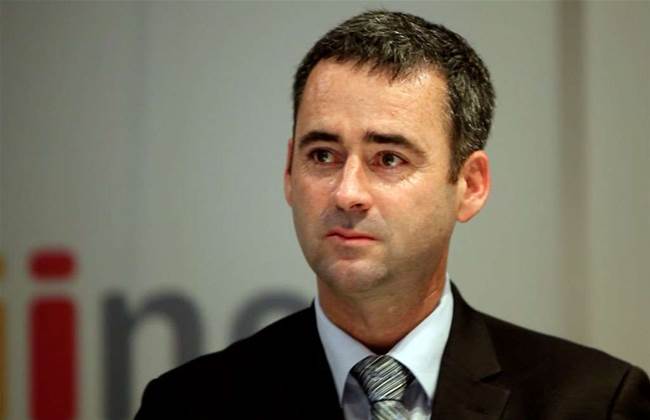iiNet is still grappling with the best way to address long-simmering system and price issues inherited from TransACT, placing them in a completely "different ballpark" to those it experienced with AAPT.

The Perth-based ISP, which paid $60 million for TransACT late last year, is on the verge of launching revised service prices for TransACT's fibre-to-the-home network.
The revision is seen as an important first step for iiNet in addressing TransACT customer gripes, which have built up over a number of years and sparked numerous threads on the Whirlpool broadband forums.
iiNet is no stranger to inheriting unhappy customers. After buying AAPT's consumer division for $60 million in 2010, it faced a backlash from AAPT customers keen to vacate expensive broadband services penalty-free.
But iiNet managing director Michael Malone told iTnews that TransACT "is very much in a different ballpark" to the challenges presented by AAPT, although the "animosity that exists there is [still] largely product-based".
"The best product in [TransACT's network] portfolio of course is the fibre-to-the-home and yet those are the customers who are unhappiest with TransACT," Malone said.
"The customers feel that they're in a monopoly situation and they're being charged exorbitant prices."
iiNet's revision of TransACT FTTH prices has been delayed a fortnight as the ISP seeks the Communications Minister's rubber stamp.
Malone first revealed the delay in a brief post to the Whirlpool forums on October 17.
He explained that TransACT had exemptions from NBN cherry-picking legislation that allowed its FTTH and VDSL networks to be extended or upgraded.
Any changes required TransACT — and now iiNet — to vary its existing undertaking with the minister in order keep the exemptions valid.
"I doubt this will be any issue as the prices are all going down," Malone noted. The delay could expire as early as today.
iiNet on cable
Change is also anticipated for customers on TransACT's hybrid fibre coaxial (HFC) cable network in Geelong, Ballarat and Mildura.
Malone revealed plans to the Whirlpool forums in June to provision iiNet services on the HFC network.
He said in a separate post on October 18 that iiNet's HFC products could be ready as early as the end of this month.
"The HFC customers are a bit trickier [than FTTH] but the way we're going to tackle that one is rather than completely revamp the way TransACT does everything in Victoria, iiNet's going to commence selling onto the HFC network itself," Malone confirmed to iTnews.
Pondering VDSL
The third part of revamping TransACT's offerings is working out what to do with the firm's ageing VDSL1 network, which covers "about half the houses in Canberra".
TransACT has been upgrading parts of the 12-year-old network from VDSL1 to VDSL2 since March 2009. But the spectre of the NBN is hanging over the completion of the project.
"To upgrade the entire network to VDSL2 would cost about $8 million," Malone told iTnews.
"That's a bit of a head-scratcher in an environment where NBN is likely to be coming along pretty soon".
Malone's comments mesh with those he made in June, where he said he'd "really like to know what is happening with NBN in Canberra before potentially wasting money on pointless upgrades."
In the interim, upgrades are being given to customers whose VDSL1 equipment fails. Malone has previously said replacement modems are limited "and there are no more being made".
One alternative on the table is for VDSL1 customers to be offered an iiNet DSL2+ connection instead.
Malone said that iiNet planed to knock over FTTH and HFC plan changes before determining the approach for VDSL.
"We figured let's deal with the 'easy' ones in terms of the HFC and the FTTH because we have an easier and obvious strategy to tackle them, and then we'll circle back and have a look at the VDSL," he said.
IT challenges
Aside from challenges with TransACT's product set, iiNet is facing the simultaneous challenge dealing with TransACT's lack of in-house IT.
Energy firm ActewAGL managed TransACT's day-to-day operations under a deal signed in 2004. This arrangement was severed in January 2010, and TransACT moved the IT systems it had to outsourcers Cordelta and Logica.
Malone described TransACT's systems as "very primitive".
"There's no ticketing system for consumers, there's literally faxes between departments that are sitting metres away from each other, [and] pieces of paper are done for everything," he said.
"That's going to take us quite a few months [to address]. We've only really got our teeth into it in the last three months because we were dealing with AAPT first."
Malone expected it would probably take "another year" for TransACT to reach an operating level that he was comfortable with.
"It's a much longer road than we're used to," he said.



_(33).jpg&h=140&w=231&c=1&s=0)

.png&h=140&w=231&c=1&s=0)





 iTnews Executive Retreat - Security Leaders Edition
iTnews Executive Retreat - Security Leaders Edition
 iTnews Benchmark Awards 2026
iTnews Benchmark Awards 2026
 iTnews Cloud Covered Breakfast Summit
iTnews Cloud Covered Breakfast Summit
 The 2026 iAwards
The 2026 iAwards












_(1).jpg&h=140&w=231&c=1&s=0)



